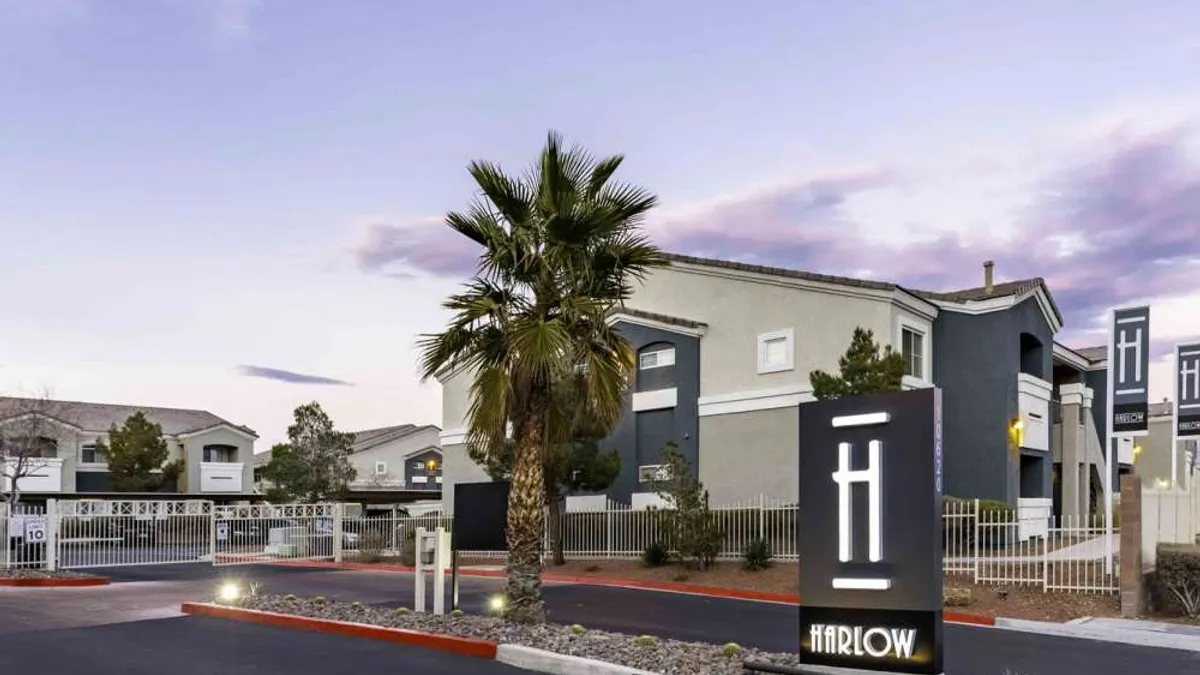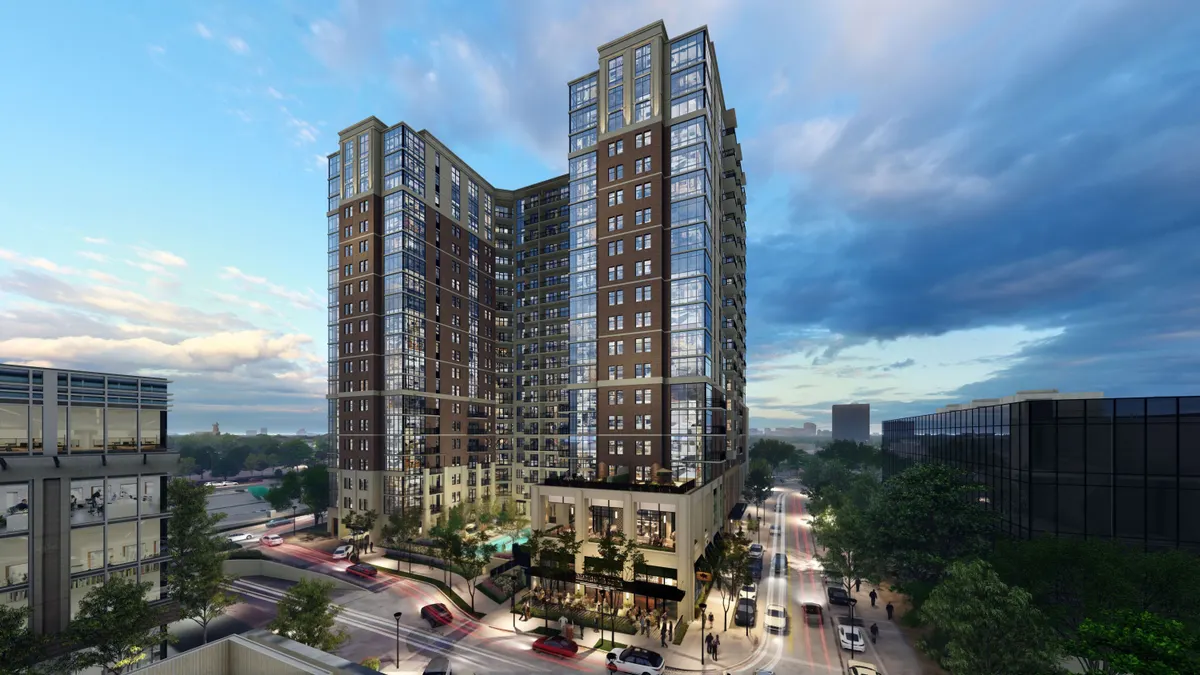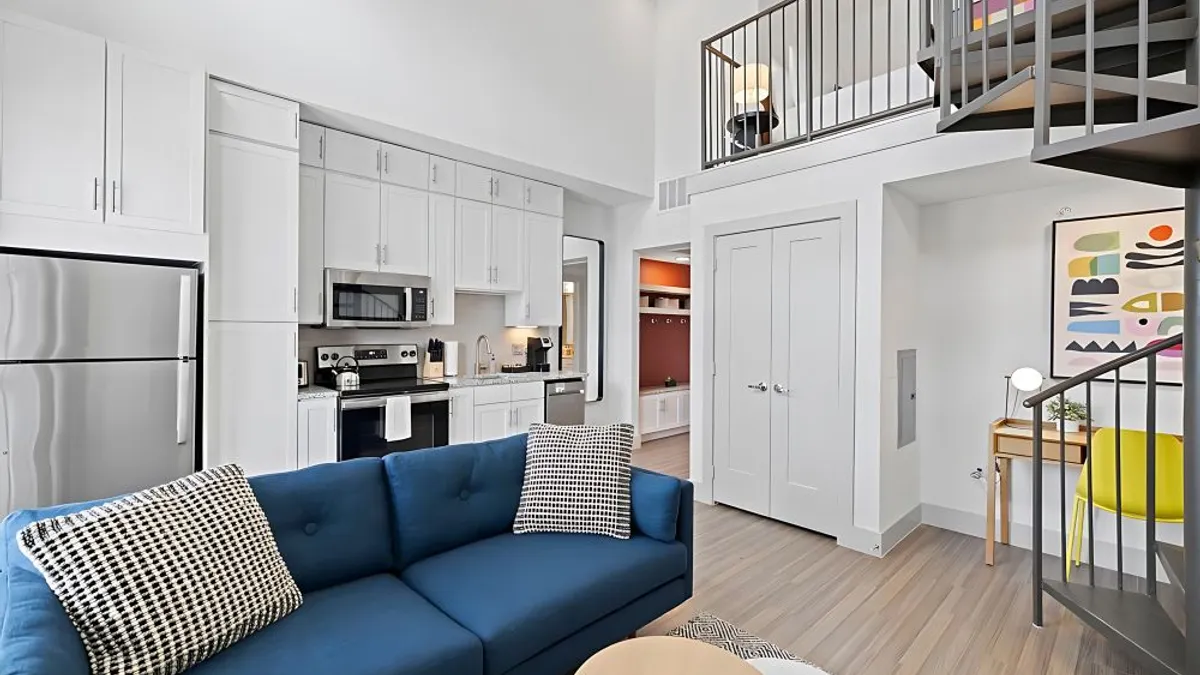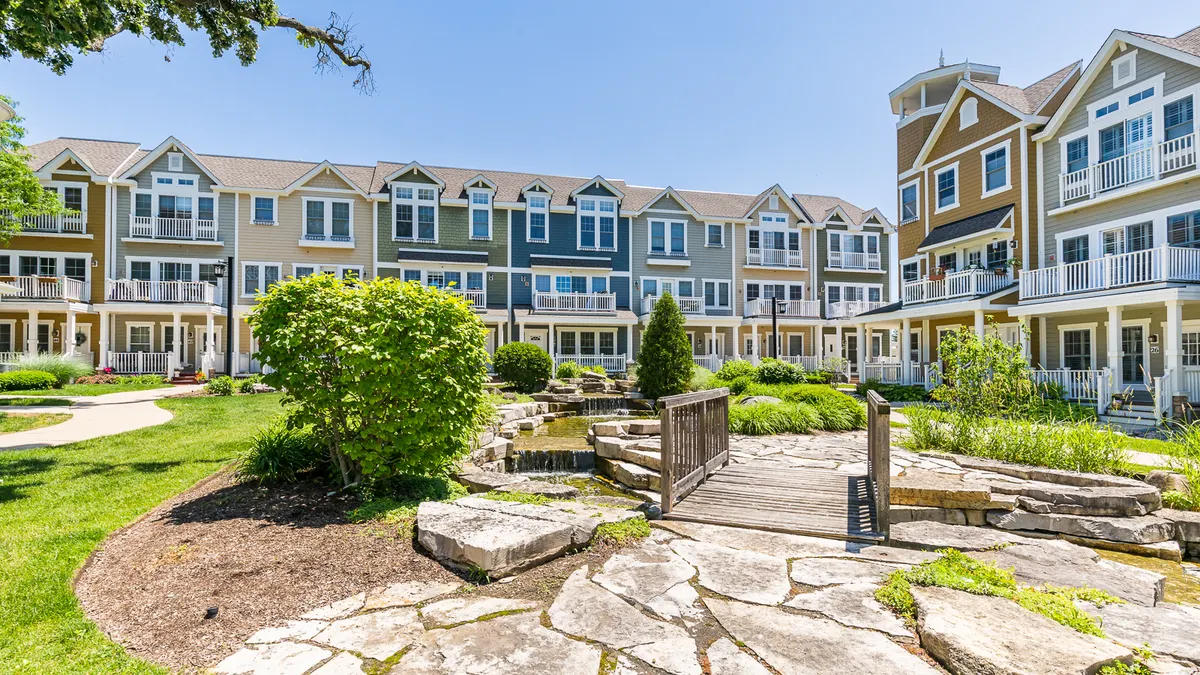As the larger multifamily management companies get bigger and bigger, with many over 100,000 units and Charleston, South Carolina-based Greystar approaching 1 million apartments, it's easy to wonder how smaller firms can compete.
Taylor Verhaalen, president of Stout Management, may have an answer. The Las Vegas-based operator has found success focusing on its home state, with a special emphasis on Sin City.
“The knowledge that we have in Vegas has been our special sauce,” Verhaalen told Multifamily Dive. “We've been here. We've seen the ups and downs and know each submarket.”
Stout, founded in 1978, is family-owned and operated and has almost 300 employees. The firm operates roughly 9,400 units, and it just added more than 150 units in Reno after taking over The MOD at Riverwalk II and The Oslo.
“We had close to 1,000 units in Reno years and years ago,” Verhaalen said. “And then that client sold their portfolio. We had a client who asked us to go up there a couple of years ago. We took on one asset, actually in Sparks, and then through a little bit of effort, I've taken over a couple of other ones.”
With good post-pandemic growth, Verhaalen thinks Reno is a good place to expand Stout’s model.
“I'm the owner,” Verhaalen said. “I still walk properties and still talk to clients. My COO runs my operational site organization and still hits sites and meets his regionals. We're all here in Nevada. There is just another level of attention on each asset.”
Here, Verhaalen talks with Multifamily Dive about technology, maintenance and the Las Vegas market.
This interview has been edited for brevity and clarity.
MULTIFAMILY DIVE: How is Stout incorporating technology?
TAYLOR VERHAALEN: If you're not exploring different avenues of using technology, you're going to be left behind. We're aggressive on things that we think can improve efficiencies and minimize redundant work and things that can be automated. So, as far as rent reminders and resident communication, those things can be automated through text messaging or AI.
We take payments strictly through online and digital means now. So, no one is dropping checks off in the office. Technology helps you automate and integrate all your marketing and advertising. So if you've got it synced up with your core systems, people aren't having to change prices daily.
We've got databases internally that take all of our data from our properties and aggregate it. So we've got really good visibility in the KPIs from a global level and we can identify certain properties operating outside of the norms of our portfolio. If someone's operating expenses are too high, it's pretty obvious.
Are there things you’re not automating?
There are areas we haven’t jumped into quite yet, which I think makes us a little more effective. Because we're local, I make those decisions personally. I'm not automating leasing calls and I’m not using call centers or centralized stuff because I don't think they're as effective as your person on site being able to sell the amenities and knowing what happens on their actual properties.
We're not quite as far along as the others, but that's by choice. I think there is a benefit to talking to someone who knows their property, not just someone reading a sheet somewhere in a centralized office.
Since you have a large concentration of units in Las Vegas, have you incorporated centralization in other parts of your operation, like maintenance?
I do believe that technicians who sit on site and know that there is a recurring slab leak issue with the properties, for instance, know exactly why things are not working. I think it takes less time for them to understand and fix things that are occurring on the property. That being said, Stout Management also has a floating maintenance team.
We've got specialized people within our organization that are not assigned to any property and can be assigned at any given time to assist when there's a flare up in HVAC, for example, in Las Vegas. I'm not going to have my owner pay for an extra person for 40 hours a week. But when we get in a few more calls than we can handle, I have a team I can send out. So it's an avenue of centralization that minimizes costs for owners.
Have you thought about expanding beyond Nevada?
We've been asked by our clients and owners to expand out of Nevada. We said no so far, and that's where we are now. I sit on the board of the Nevada Apartment Association. I'm very familiar with the legislative landscape and landlord-tenant laws here in Nevada. I like where we are. We're familiar with it.
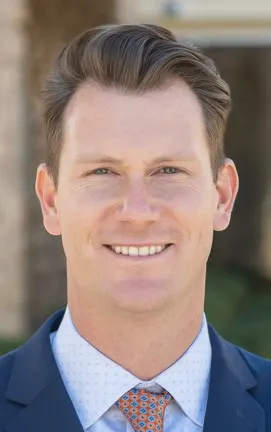
It would take a large portfolio for me to expand into another state. And it would have to be somewhat similar, like Arizona — a market with a similar kind of construction, feel and growth pattern. But at the moment, that's not our plan.
How has the Vegas market changed over the past 20 years?
I think the highs and lows are less drastic than they used to be. After the Great Recession, people were highly hesitant to get into Vegas because they thought we were a one-trick pony with casinos and hospitality, which drove the market. And when there's stress elsewhere, that means people don't come to visit Las Vegas.
At that point, we were not insulated at all from our core economic driver. If people were having a tough time just paying their bills, they weren't going to come to Vegas. There's still some of that, but we've diversified quite a bit.
We've got multiple professional sports teams now, which is a good indicator. We've worked on healthcare — we've got investments there. Our education and our universities are getting better. Even the casinos themselves have sort of diversified their offerings. It's not just gambling. It's events and things like that.
You’ve got world-class hiking and outdoor stuff as well. So we are more diverse. That being said, there are still the ups and downs of Vegas.
Click here to sign up to receive multifamily and apartment news like this article in your inbox every weekday.



